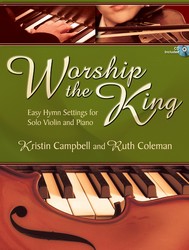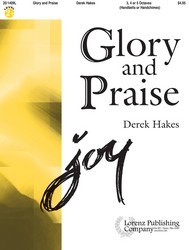- |
User Links
O For a Heart to Praise My God

O for a heart to praise my God
Author: Charles Wesley (1742)Published in 1167 hymnals
Printable scores: PDF, MusicXMLPlayable presentation: Lyrics only, lyrics + musicAudio files: MIDI, Recording
Representative Text
1 O for a heart to praise my God,
a heart from sin set free,
a heart that always feels Thy blood
so freely shed for me.
2 A heart resigned, submissive, meek,
my great Redeemer's throne,
where only Christ is heard to speak,
where Jesus reigns alone.
3 A humble, lowly, contrite heart,
believing, true, and clean,
which neither life nor death can part
from Christ who dwells within.
4 A heart in ev'ry thought renewed
and full of love divine,
perfect and right and pure and good,
a copy, Lord, of Thine.
5 Thy nature, gracious Lord, impart;
come quickly from above;
write Thy new name upon my heart,
Thy new best name of Love.
Source: Our Great Redeemer's Praise #314
Author: Charles Wesley
 Charles Wesley, M.A. was the great hymn-writer of the Wesley family, perhaps, taking quantity and quality into consideration, the great hymn-writer of all ages. Charles Wesley was the youngest son and 18th child of Samuel and Susanna Wesley, and was born at Epworth Rectory, Dec. 18, 1707. In 1716 he went to Westminster School, being provided with a home and board by his elder brother Samuel, then usher at the school, until 1721, when he was elected King's Scholar, and as such received his board and education free. In 1726 Charles Wesley was elected to a Westminster studentship at Christ Church, Oxford, where he took his degree in 1729, and became a college tutor. In the early part of the same year his religious impressions were much deepene… Go to person page >
Charles Wesley, M.A. was the great hymn-writer of the Wesley family, perhaps, taking quantity and quality into consideration, the great hymn-writer of all ages. Charles Wesley was the youngest son and 18th child of Samuel and Susanna Wesley, and was born at Epworth Rectory, Dec. 18, 1707. In 1716 he went to Westminster School, being provided with a home and board by his elder brother Samuel, then usher at the school, until 1721, when he was elected King's Scholar, and as such received his board and education free. In 1726 Charles Wesley was elected to a Westminster studentship at Christ Church, Oxford, where he took his degree in 1729, and became a college tutor. In the early part of the same year his religious impressions were much deepene… Go to person page >Text Information
| First Line: | O for a heart to praise my God |
| Title: | O For a Heart to Praise My God |
| Author: | Charles Wesley (1742) |
| Meter: | 8.6.8.6 |
| Language: | English |
| Copyright: | Public Domain |
- (hymns)
- (hymns)
- (hymns)
- (hymns)
- (hymns)
- (hymns)
- (hymns)
- (hymns)
- (hymns)
- (hymns)
- (hymns)
- (hymns)
- (hymns)
- (hymns)
- (hymns)
- (hymns)
- (hymns)
- (hymns)
- (hymns)
- (hymns)
- (hymns)
- (hymns)
- (hymns)
- (hymns)
- (hymns)
- (hymns)
- (hymns)
- (hymns)
- (hymns)
- (hymns)
- (hymns)
- (hymns)
- (hymns)
- (hymns)
- (hymns)
- (hymns)
- (hymns)
- (hymns)
- (hymns)
- (hymns)
- (hymns)
- (hymns)
- (hymns)
- (hymns)
Chinese
English
- 52 Hymns of the Heart: with an appendix of favorite solos and choruses (Missionary and Church Extension Ed.) #27
- A Baptist Hymn Book, Designed Especially for the Regular Baptist Church and All Lovers of Truth #d557
- A Book of Hymns for Public and Private Devotion (15th ed.) #518
- A Book of Hymns for Public and Private Devotion. (10th ed.) #518
- A Book of Worship for the Use of the Evangelical Lutheran Church ... of the Church of the Redeemer, Richmond, Virginia #d120
- A Choice Selection of Evangelical Hymns, from various authors: for the use of the English Evangelical Lutheran Church in New York #303
- A Choice Selection of Hymns and Spiritual Songs for the use of the Baptist Church and all lovers of song #165
- A Choice Selection of Hymns. 2nd ed. #d153
- A Choice Selection of Hymns. 6th ed. #d185
- A Church Hymn Book: for the use of congregations of the United Church of England and Ireland #153 10 shown out of 776
O for a heart to praise my God. C. Wesley. [Holiness desired.] Appeared in Hymns and Sacred Poems, 1742, p. 80, in 8 stanzas of 4 lines. (Poeticl Works, 1868-72, vol. ii. p. 77). It is based on the Prayer Book version of Psalms li. 10. From its appearance in M. Madan's Psalms & Hymns, 1760, No. 3, to the present time, it has been one of the most widely used of C. Wesley's hymns. It was given in the Wesleyan Hymn Book, 1780, No. 334. G. J. Stevenson's note in his Methodist Hymn Book Notes, 1883, p. 245, is of more than usual interest.
--John Julian, Dictionary of Hymnology (1907)
Notes
O for a heart to praise my God. C. Wesley. [Holiness desired.] Appeared in Hymns and Sacred Poems, 1742, p. 80, in 8 stanzas of 4 lines. (Poeticl Works, 1868-72, vol. ii. p. 77). It is based on the Prayer Book version of Psalms li. 10. From its appearance in M. Madan's Psalms & Hymns, 1760, No. 3, to the present time, it has been one of the most widely used of C. Wesley's hymns. It was given in the Wesleyan Hymn Book, 1780, No. 334. G. J. Stevenson's note in his Methodist Hymn Book Notes, 1883, p. 245, is of more than usual interest.
--John Julian, Dictionary of Hymnology (1907)
Tune
AZMONLowell Mason (PHH 96) adapted AZMON from a melody composed by Carl G. Gläser in 1828. Mason published a duple-meter version in his Modern Psalmist (1839) but changed it to triple meter in his later publications. Mason used (often obscure) biblical names for his tune titles; Azmon, a city south of C…
ARLINGTON (Arne)
Timeline
Arrangements
Media
- Audio recording from The Celebration Hymnal: songs and hymns for worship #650
- MIDI file from The Cyber Hymnal #4817
- Audio recording from The New English Hymnal #74
- MIDI file from New Songs of the Gospel No. 2: for use in religious meetings #75
- Audio recording from Rejoice in the Lord #438
- MIDI file from The United Methodist Hymnal #417
- Audio recording from The United Methodist Hymnal #417


 My Starred Hymns
My Starred Hymns






